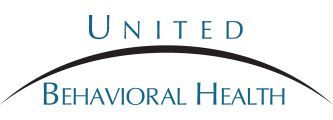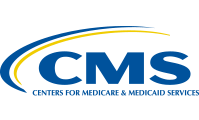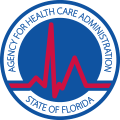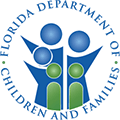With opioid abuse and addiction continuing to wreak devastation across Tampa and throughout Florida, state leaders recently took several steps designed to end the opioid epidemic.
On May 3, Florida Gov. Rick Scott officially declared an opioid-related state of emergency and Surgeon General Celeste Philip declared that opioid abuse was a public health emergency. The same day, the Florida Senate approved a bill that would create more stringent penalties for individuals who illegally sell synthetic drugs such as the powerful opioid fentanyl.
The Scope of the Opioid Epidemic in Florida
The U.S. Centers for Disease Control and Prevention (CDC) has reported that Florida ranked fourth in the United States for total opioid overdose deaths in 2015. The 3,228 opioid-related deaths that occurred in Florida in 2015, which represented a 23% increase from 2014, work out to an average of almost nine opioid-related deaths every day.
Florida’s opioid epidemic has not spared Hillsborough County, which includes Tampa, or Pasco County, which includes Wesley Chapel. For example, in September 2015 the Tampa Bay Times reported that heroin-related deaths in Hillsborough County, which includes Tampa, had increased by more than 700% from 2013 to 2014, and were on pace to increase by almost 100% in 2015.
According to the website County Health Rankings, Pasco County, which includes Wesley Chapel, had the sixth-highest drug overdose mortality rate in the state of Florida. The County Health Rankings information was based on data from the years 2012-2014.
Federal Funding to Fight Opioid Abuse in Florida
Gov. Scott’s signature on his state of emergency declaration authorized the state to draw money from the State Targeted Response to the Opioid Crisis Grants, a program that was established by the U.S. Department of Health and Human Services (HHS) in April 2017 and that is administered by the Substance Abuse and Mental Health Services Agency (SAMHSA).
In its first year, the HHS opioid grant program is making a total of $485 million available to all U.S. states as well as the District of Columbia and several U.S. territories this year. Florida is eligible to receive $27,150,403 in 2017. Texas and California are the only states that will receive more money from this program this year to fight opioid abuse.
According to the April 19 release that announced the creation of the State Targeted Response to the Opioid Crisis Grants program, HHS has established five priorities in the effort to combat opioid abuse and addiction:
- Strengthening public health surveillance
- Advancing the practice of pain management
- Improving access to treatment and recovery services
- Targeting availability and distribution of overdose-reversing drugs
- Supporting cutting-edge research
Getting Naloxone into the Hands of First Responders in Florida
While Gov. Scott’s declaration was aimed at bringing additional federal dollars to Florida’s fight against opioid abuse, Surgeon General Philip’s effort was designed to get a life-saving drug into the hands of first responders throughout the state.
The surgeon general’s declaration of a public health emergency in Florida included a standing order that first responders have access to naloxone, a medication that can reverse the effects of opioid overdose if administered in a timely fashion.
Naloxone, which is often sold as a nasal spray under the brand name Narcan, does not require advanced medical training to administer, which means that police officers, firefighters, and other first responders in Florida can use the medication to save the lives of individuals who have overdosed on heroin, morphine, prescription painkillers, and other opioids.
Many communities in Florida and throughout the United States permit naloxone to be purchased by anyone without a prescription, so that friends and family members of individuals who are addicted to opioids can have this emergency medication on hand if necessary.
In 2015, the U.S. Centers for Disease Control and Prevention (CDC) reported that legal access to naloxone throughout the United States had increased by 187% between 2010 and 2014. During that same period of time, the CDC also reported, the number of opioid overdose reversals that were attributed to naloxone increased by 160%.
Florida Senate Targets Opioid Dealers
While Gov. Scott and Surgeon General Philip were signing their emergency declarations, the Florida Senate unanimously passed House Bill 477, which would add fentanyl, carfentanil, and other synthetic forms of this powerful opioid, to the state’s list of schedule I controlled substances.
If the bill, which passed the Florida House of Representatives in April, is signed into law by Gov. Scott, possession of more than four grams of fentanyl would become a first-degree felony, which would significantly increase jail time and fines for individuals who are caught with this extremely powerful opioid.
Help for Opioid Addiction in Tampa
As devastating as opioid addiction can be, the disease is treatable. When a person who has become dependent upon opioids receives effective care at a hospital or other treatment center, he or she can experience true and lasting recovery.
Adult men and women in Tampa, Wesley Chapel, and nearby areas who have been struggling with opioid addiction can get the help that they need at North Tampa Behavioral Health.
North Tampa Behavioral Health provides a host of comprehensive treatment services, including residential, partial hospitalization (PHP), and intensive outpatient (IOP) options. North Tampa’s center is a hospital-like environment in which men and women can receive clinically sophisticated services from experienced professionals.
The personalized care that individuals receive North Tampa Behavioral Health empowers them to stop abusing opioids, and enables them to make the lifestyle changes that will support long-term recovery and a healthier future, free from the constraints and limitations of opioid addiction.











